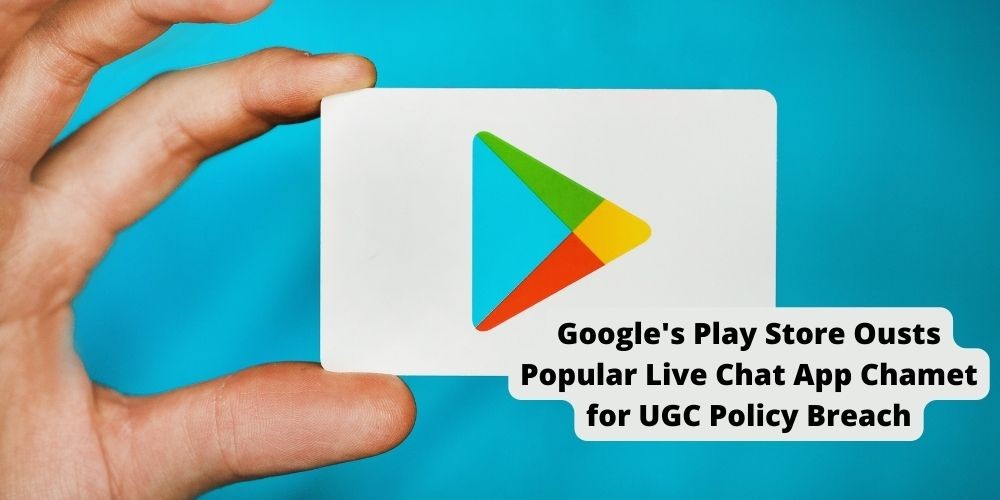Google's Play Store Ousts Popular Live Chat App Chamet for UGC Policy Breach
- 2023-09-02

Intense scrutiny has led to the ousting of the renowned live video chat application Chamet from Google’s Play Store. The tech behemoth has justified this move as a repercussion for the app's infringement of its user-generated content (UGC) policy. Chamet had become a hub of controversy despite its glorified popularity among millions of users. Its banishment comes after allegations of featuring objectionable user-generated content.
Chamet created a storm in the online community with its unique model – live video streaming with a private call option. Users around the globe were offered the option to make a monetary transaction and privately call the host of a live stream. In this era of live streaming popularity, it was the ability to send gifts via in-app purchases that made this app a trend. The model appealed to many, with women regaling audiences with music, dance, or simple chats about everyday life.
Despite its popularity, the tripping point for this app was its inability to curb illicit and objectionable content. Chamet issued warnings to users about refraining from posting inappropriate content related to explicit scenes, violence, obscenity, and juvenile-related issues. However, these endeavors were ineffective, as the app continued to be a ground for suggestive content and advertisements that pushed limits.
Aside from the inglorious content, questions about the app's handling and ownership have also been raised. YouTube personality Caleb Friesen spotlighted Chamet's dubious handling practices, specifically pinpointing the stark website with minimal details about the platform. These layers of controversies have not only affected the app's popularity but also cast doubt on its future credibility.
In conclusion, the tale of Chamet's rise and fall from grace provides digital platforms with a crucial lesson on maintaining ethical and policy standards. Even as Chamet grossed millions of dollars and maintained a steady consumer base, it fell from its pedestal due to lax oversight of content regulation. A telling narrative for app creators to strike a balance between popularity and adherence to the rule of law and decorum in the digital space.





